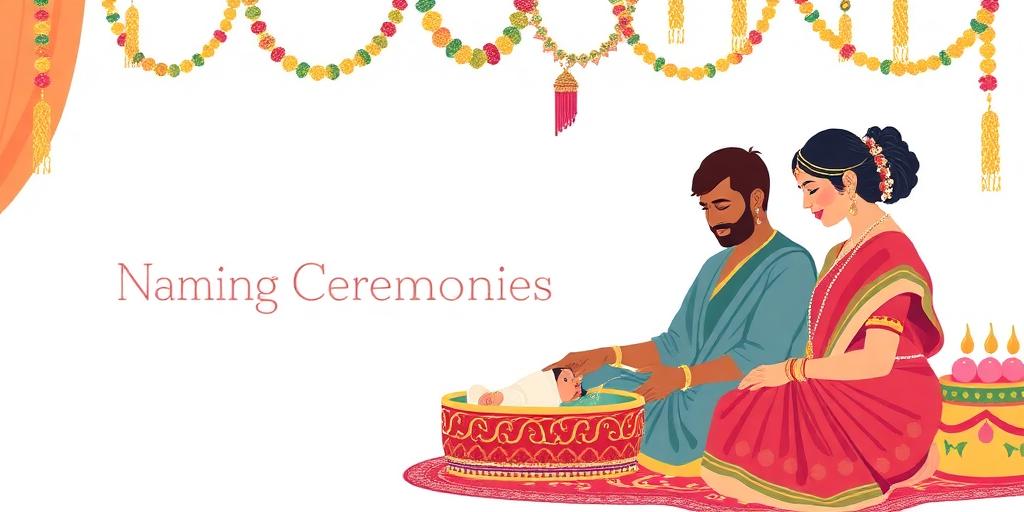Naming ceremonies, deeply embedded in the cultural fabric of South India, represent a significant milestone in a child's life and the family's heritage. These ceremonies, known by various names across the different states and communities, are more than just a formality; they are a profound declaration of identity, a celebration of lineage, and an invocation of blessings for the child's future.
The cultural mosaic of South India—comprising Tamil Nadu, Kerala, Karnataka, Andhra Pradesh, and Telangana—features diverse traditions, languages, and practices. Consequently, naming ceremonies vary considerably in their rituals and customs. However, the underlying essence remains consistent: to formally introduce the child to the community and bestow a name believed to shape their destiny.
In Tamil Nadu, the naming ceremony, or 'Thottil Ceremony,' often occurs within the first month of the child's birth. The baby is placed in a cradle, and family members whisper the chosen name into the child's ear, followed by a formal announcement. In Kerala, the ' নামকরণം Namakaranam' ceremony typically takes place on the 28th day after birth. The father writes the chosen name in rice spread on a platter using a gold ring, followed by whispering the name into the baby's ear. Karnataka's 'Namakarana' follows a similar pattern, often integrated with other rituals to purify and bless the child. Andhra Pradesh and Telangana also observe 'Barasala' or naming ceremony, usually 11 or 21 days after the birth, accompanied by Vedic chants and family feasts.
The selection of a name is a meticulous process, often influenced by astrological considerations. Many families consult astrologers to determine the most auspicious name based on the child's birth star and planetary positions. Names may also honor ancestors, deities, or carry significant meanings rooted in the family's cultural or religious background. The chosen name is believed to influence the child's character, fortune, and overall well-being, underscoring the gravity of this decision.
Beyond the ritualistic aspects, naming ceremonies in South India foster community bonds. These events bring together extended family and friends, reinforcing social connections and communal identity. The ceremonies often include traditional music, dance, and feasts, celebrating not just the child but also the continuation of cultural heritage. The elders impart wisdom and blessings, ensuring that the younger generation remains connected to their roots.
In conclusion, naming ceremonies in South India are pivotal cultural events that signify identity, heritage, and community. They are carefully orchestrated rituals that reflect the region's diverse yet unified cultural ethos. The practice of bestowing a meaningful name, guided by tradition and astrological insights, underscores the profound belief in the power of names to shape a child's destiny and preserve cultural continuity.









